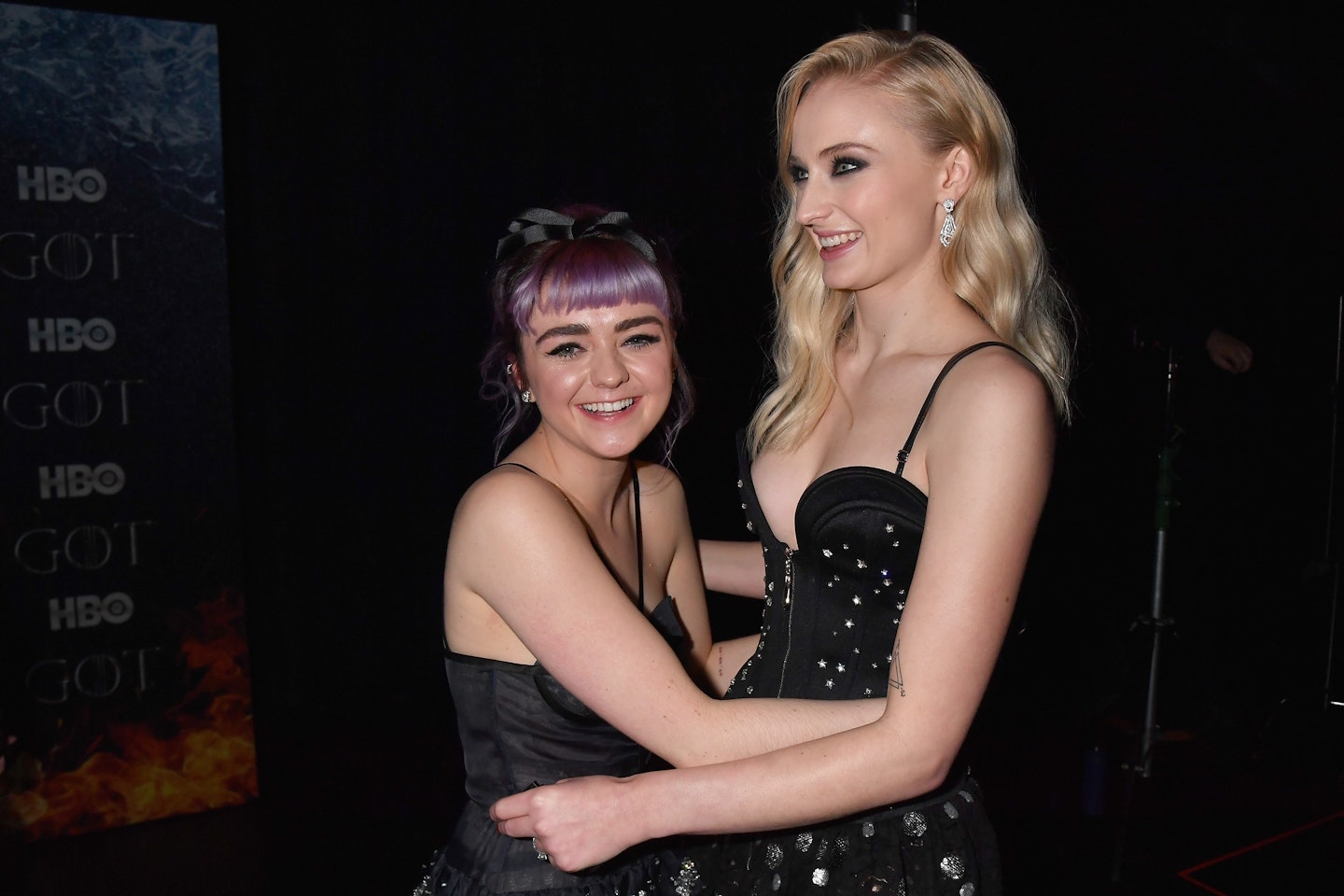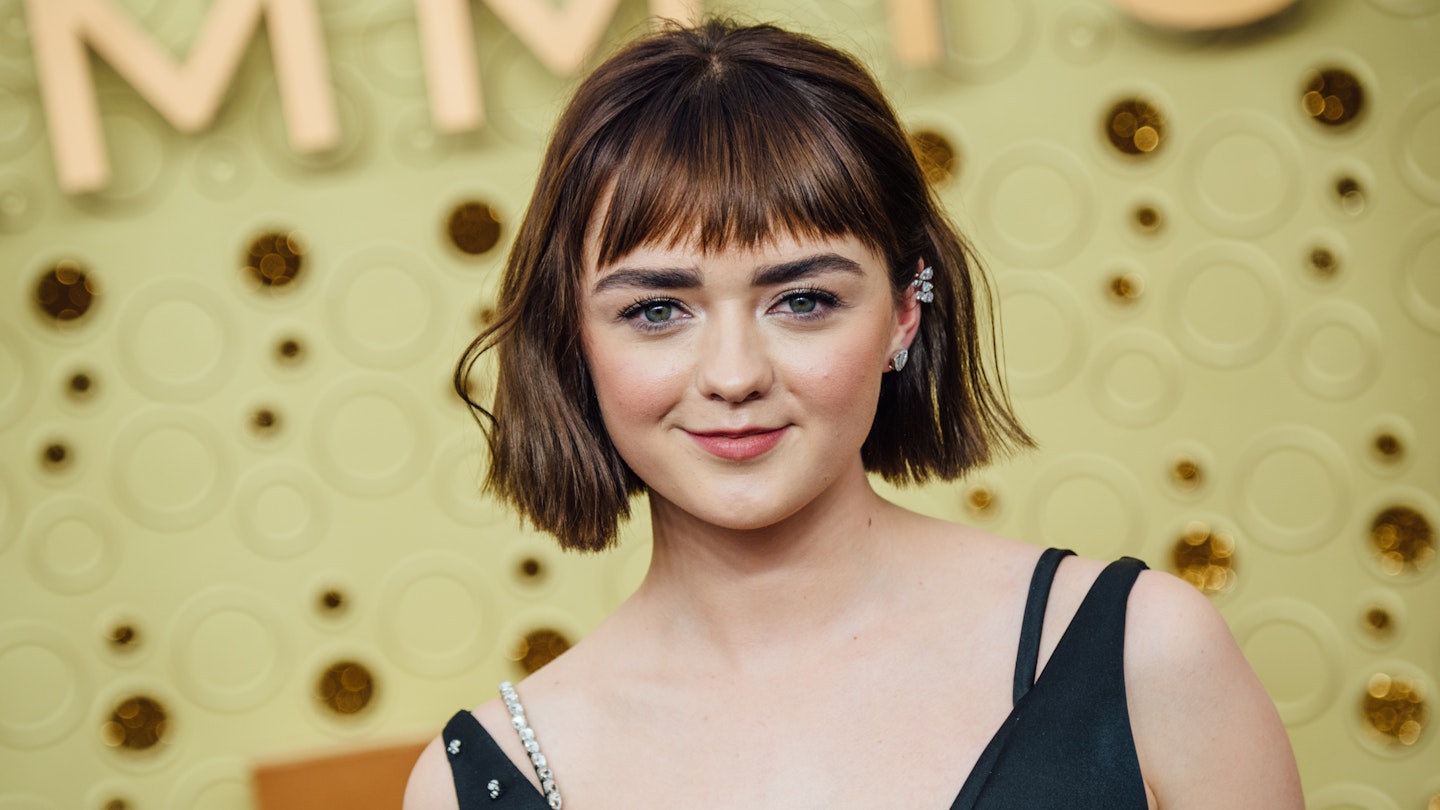Maisie Williams had just turned fourteen when the first episode of Game Of Thrones debuted on US television. Suddenly, she was a superstar, her depiction of a plucky child thrown into an epic power play making her recognisable all over the world. Over the years she, and her character, grew up in a strange world, with the controversial series finale seeing Arya Stark sail into the distance on a voyage of self-discovery. Through her other roles, both during and since the acclaimed programme’s close, it’s clear that Maisie is on a similar path.
In recent years, she has impressed in iBoy, biopic Mary Shelley and in The Falling, a fascinating school-set drama in which she starred alongside Florence Pugh. This week, she has returned to the small screen, taking the lead in Sky’s Two Weeks To Live. But it also sees her in her biggest film to date: New Mutants. Part of the X-Men Universe, the film follows five young mutants – including Maisie’s Rahne Sinclair - who have yet to truly grasp their powers. Put in an asylum-like facility – ostensibly for their own protection – it soon becomes clear that this is no sleek popcorn movie, but a horror-tinged, genre-bending interpretation of the graphic novel. Maisie signed on after speaking with director Josh Boone.
‘It was shortly after my friend Sophie (Turner), who I worked with on Game of Thrones, had just shot X-Men and she had heard they were doing a spinoff’, says Maisie. ‘I didn’t know anything about The New Mutants and I had never read the comics. So Josh told me a little bit about Rahne and Wolfsbane, but it was very early days, and there wasn’t even a greenlit script yet.’

Sophie played Sansa, Arya’s sister in Game Of Thrones, and the pair are close friends and, clearly, confidantes. ‘She basically said “eventually you are going to want to do something again which is either a franchise or a series because it’s really great exposure,”’ explains Maisie. ‘And she was like, “if you are happy with the longevity of the character and you have an idea of where the character is going in possible future films, then go for it.” Plus, it really is just one movie and not like a series where you have to keep coming back year after year. In fact, there can be gaps of two to three years between movies, so it’s not quite as regimented as six months every year for the next six years. It’s so wonderful having Sophie as a friend and a voice of reason.’
After signing on to the film, which also stars Split actress Anya Taylor-Joy and Stranger Things star Charlie Heaton, Maisie began the research. ‘I went with the script and was very happy with the way that Rahne was written,’ says Maisie. ‘Although at first glance she is very similar to [Arya in] Game of Thrones in that she is a wolf and she has short hair. But then when I read into the actual character of Rahne, I realised that she is far more of an introvert and is quite underestimated. She doesn’t have a very strong voice or impact on the group and it was nice to create a new character who isn’t so sure of herself. I actually didn’t read any of the comics, but I went on Wikipedia and got a rough back story about her. I truly believe that in trying to create someone like Rahne, you can find her by looking in lots of different places outside of the comic. You are not trying to mimic what you read and are actually trying to make someone authentic by breathing some real emotion into her. I have always been very outspoken and I have always wanted to be the centre of attention which is very different to Rahne, so it was nice taking a step back and shaping someone that is far more in her head than a huge part of the group dynamic.
Rahne, Maisie explains, is more used to her powers than the other inhabitants of the hospital, and she spends much of her time in her wolf form. The arrival of fellow mutant Dani – played by Blu Hunt – makes her face her own emotions, however, all heightened by the hormones and rollercoaster emotions that come with being a teenager. ‘I really wanted to play on that’, says Maisie. ‘When we were doing the original screen test for the hair, the nails and the prosthetics, it was really interesting to look in the mirror and kind of feel gross and not really like what you see. I think that would be something that Rahne is going through. Girls and boys going through puberty, lose a lot of confidence in themselves and a lot of that has to do with their image. And if you add on top of that the fact that you turn into a pretty strange looking wolf girl, I think that is something that she struggles with. Plus, her sexuality and her religious background is ultimately what makes her quite an introverted character.’
Maisie guesses that Rahne has the least amount of dialogue when the group are all interacting, but she sees this as a positive, forcing her to look inward at characterisation. ‘A lot of my preparation is not doing dialogue work, but rather what is Rahne really thinking during those moments and what is she putting together that she can tell the group of what she has learned?’, she explains. ‘And you finally do see her at the end start to speak out when she realises that she has a really important piece of information. These were tiny little struggles that are so miniscule in terms of the whole story, but for me, it’s what I have been sort of playing with throughout the whole film.’
‘It’s just a great fresh new take on the genre’, she says of the surprising horror spin. ‘Josh is offering such an interesting stamp for a story of this genre, plus you have such diverse characters from different backgrounds. It’s thrilling to be a part of this new age of filmmaking which is starting to show more diversity in characters, their sexuality and beliefs. I think that there’s no better time than now.’
New Mutants is in cinemas now
READ MORE: Thank Goodness For Daisy May Cooper's Instagram About Post-Birth Bowel Movements
READ MORE::a['My Parents Decided To Outwit Everyone By Giving Their Daughter A White Man’s Name']{href='https://graziadaily.co.uk/life/books/austin-channing-brown-name-extract/' target='_blank' rel='noopener noreferrer'}
